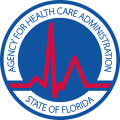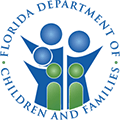The abuse of prescription medications has been a long-standing concern. As the problem continues to increase in epidemic proportions, the misuse of prescription drugs has seemingly become more prevalent than the abuse of illicit substances like cocaine and heroin in many cities throughout the United States.
Addiction specialists across the country have noted that prior to a decade ago, instances of prescription drug abuse did not present as being as being as prevalent as they are in present day. Now, people are seeking out addiction treatment services for substance abuse problems related to prescription medications, including painkillers like fentanyl, just as often as alcohol or other drugs.
An addiction counselor from the Clinical Psychology Associates of North Central Florida, Ernest Bordini, noted that, historically, cases of abusing legal substances like prescription painkillers were somewhat rare in his practice. Bordini explains, “Most of them were alcohol, pot, and cocaine,” adding that, “in the last five years, narcotic addiction referrals have become very common.”
Tragically, along with the increase in the popularity of using prescription painkillers for non-medicinal purposes comes an increase in fatalities that result from this type of substance misuse. Among such prescription medications, one of the most popular is fentanyl, which is a powerful opioid prescription pain medication.
In Florida specifically, deaths caused by fentanyl have increased exponentially over the last five years, coming close to actually doubling in number. In August of 2016, the devastation of fentanyl and related opioid substances became a glaring reality when an 18 year old died following a fentanyl overdose while attending a Narcotics Anonymous (NA) meeting in Gainesville, Florida. Sadly, this is just one of countless similar cases in the state.
The Centers for Disease Control and Prevention (CDC) and the Drug Enforcement Administration (DEA) delivered nationwide alerts in 2015 regarding fentanyl and fentanyl-based derivatives that are a threat to the public’s health and the safety of communities. These alerts were issued after there was a drastic increase in deaths as the result of fentanyl overdoses in Florida and Ohio specifically. According to the CDC, there was a 115% increase in deaths related to fentanyl consumption in Florida alone between 2013 and 2014.
Federal legislation has been consistently taking steps to try and reverse the painkiller abuse epidemic by putting mandates on the number of prescriptions that physicians are allowed to write for opioid-based painkiller medications. While this is a step in the right direction, it has also had an adverse effect in that it is beginning to force individuals to switch to using heroin, which is another opioid substance, as a replacement for whatever prescription painkiller they are no longer able to acquire. In other words, there are people who are still attempting to obtain prescription painkillers, while also potentially consuming heroin when they cannot get the medications they want. So now there are people continuing to die from overdoses on prescription painkillers like fentanyl, as well as from overdoses on heroin. Manatee County, approximately an hour’s drive from Wesley Chapel, is said to have the most heroin and fentanyl-related deaths in the entire state of Florida.
While steps continue to be taken to eradicate the ever-changing trends in substance abuse, it seems unlikely that there will ever be a conclusive resolution. For this reason, it is important for treatment centers in Wesley Chapel, throughout the Tampa area, and across Pasco County, Florida to remain knowledgeable of new trends in drug abuse so that they can promote and provide treatment services that assist those who are struggling with these types of chemical dependency problems.











